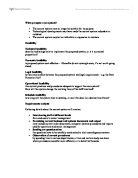The positive evaluation of Selye’s work is that the work started the study of understanding stress. It has been useful in predicting physiological responses to stress. The GAS provides a very useful model of the course of physical injuries and illness in cases where stress is prolonged.
The negative evaluation of the GAS syndrome found by Selye is that most of his work was based on rats so it may not apply to all animals, including humans. The GAS overemphasis on the physiological responses to stress, without taking account of the effects of human cognitive factors in coping. It also implies a passive response to stressors, despite evidence that people react differently to the same stressor and the reaction depends on the individual, the situation, and the particular source of stress. There are some ethical issues with Selye’s work in that the rats would have felt pain and were literally stressed to death. However it can be argued that since the work has provided the basis for useful research into the causes of serious illnesses in humans it is justified to sacrifice animals such as rats to do this.
Stone was another experiment to link illness or lack of immunity with disease such as a cold. He asked a volunteer sample of people to keep a daily record of desirable and undesirable events for a 12 week period. They were also asked to keep a daily record of any symptoms of illness or other discomforts during the same period. The findings were conclusive that most people with stressors in the weeks contracted a cold or similar illness linked to a suppressed immune system.
Stone et al’s study has limitations in that it relies on the diary method and for this reason the information provided by the participants may not be reliable as it is retrospective data. People forget smaller stressors and tend to remember negative events easier than positive events.
Cohen et all (1991) experimented with stress and the common cold. He exposed volunteers, consisting of 154 men and 226 women, to nasal drops that contained the common cold virus. The volunteers were subject to a stress test for over a year before he also did anxiety, depression, fear and irritation tests to find out how stressed the people were. The participants were isolated in a house with fellow participants for six days. He then took blood measures and observed the participants for six days.
Stress increased vulnerability to infections.
Cohen administered diseases using direct measures to isolate cause effect relationships. His experiment was controlled well and has a good sized sample of both genders. Again this experiment relies on retrospective data.
Kiecolt Glaser looked directly at the immune function through the blood. He used women that were under high stress levels due to circumstances such as divorce, caring for terminally ill patients and medical students. He took blood samples to look at the number of white blood cells to see how high the participant’s immune systems were compared to the amount of stress they had suffered.
There was significant immunosuppressant for high stress groups. Showing a definite biological link to stress and the immune system.
However on evaluation of his experiment it was found that taking blood can be a stressful situation for many participants. The white blood cells and immune response is not evenly distributed in blood so could easily be missed when a sample was taken.
In conclusion to the experiments it is seen that stress is almost a definite cause of a suppressed immune system although it may not be the only reason that the immune system is suppressed. As it is not entirely sure whether stress causes the suppression of the immune system or the suppressed immune system leads to stress.







